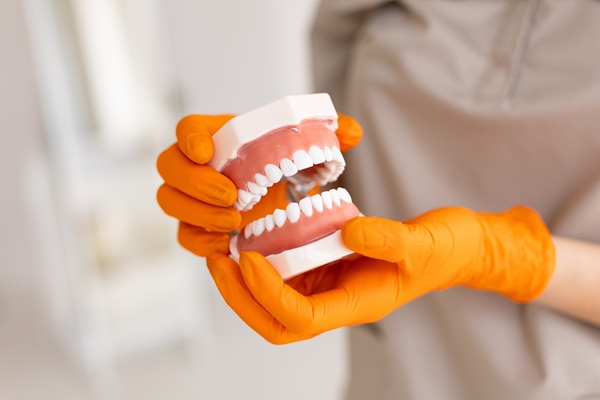What to Expect During Root Canal Treatment

Root canal therapy is a procedure that allows dentists to save severely decayed, damaged, or infected teeth. The root canal procedure involves going to the pulp chamber of a tooth to remove the nerves, blood vessels, and connective tissues there. This brings an end to infections and protects against them. It also stops any pain being caused by the affected tooth.
The root canal treatment process
Getting a root canal starts with a dental consultation. The dentist examines the patient’s tooth to determine whether root canal therapy is the right approach. While root canals are typically the first option explored, extracting the tooth is sometimes the better option.
Dentists often analyze the extent of the damage to the tooth and the risk of the infection spreading to other parts of the body before making a recommendation. X-rays might be used to help assess the damaged tooth.
If the dentist recommends root canal therapy, the patient will be injected with a local anesthetic to numb the area being worked on. Here’s what the rest of the procedure looks like:
- The dentist uses a dental drill to make a hole in the tooth. The hole opens up the pulp chamber so the dentist can extract the soft tissues there
- Dental files are used to extract the nerves, connective tissues, and blood vessels in the pulp chamber
- The pulp chamber is cleaned, and medication is inserted into it
- The dentist seals the tooth back up with a special material called gutta-percha
- The tooth might be rebuilt using composite bonding or by placing a crown on it
While root canals have a bad reputation as a painful dental procedure, that could not be further from reality. Root canals do not cause significant pain since local anesthetics are administered prior to the procedure. The myth comes from the days when local anesthetics were not as effective as they are today. Most patients do not report feeling significant pain during a root canal.
Life after getting a root canal
There is no healing period after getting a root canal, so patients are free to return to their regular activities. It should be said that a tooth that has been restored with root canal therapy can be brittle, increasing the risk of breakage. Dentists often recommend placing a crown on treated teeth to prevent this from happening. Most patients do not report any discomfort after getting a root canal. Those that do can manage any discomfort using over-the-counter painkillers.
Frequently asked questions about root canals
Still have some questions about root canals? Here are answers to a few commonly asked questions:
1. Should I be scared about getting a root canal?
The myth about root canal treatments being painful is absolutely false. Sure, root canals would be painful if anesthetics were not used, but that is not how the procedure works. Root canal therapy starts with the dentist injecting patients with a local anesthetic, numbing the tooth being worked on. Root canals help to end toothaches since whatever pain brings the patient to the clinic is typically gone by the time the procedure is over.
2. How long should I expect to spend at the clinic when getting a root canal?
Root canal therapy takes 30 to 90 minutes based on factors like the severity of the damage or infection affecting the tooth being treated. The procedure is often completed during a single visit, but it can be broken up into two treatments. Some dentists do this so they can disinfect the tooth a second time before sealing it with gutta-percha.
Teeth that have been repaired with root canal therapy are typically rebuilt with composite bonding or covered with dental crowns. That adds some more time to the length of the procedure.
3. How do I know if I need a root canal?
Some of the signs and symptoms that indicate a person might need a root canal include:
- Excruciatingly painful toothaches that get worse over time
- A tooth turning dark brown or gray
- A pus-filled pimple developing around a tooth
- Bad breath
- Tender or inflamed gum tissues around the tooth
Do you need a root canal?
A root canal may be what you need to save your damaged or infected tooth. The procedure has a high success rate, and it can usually be completed in as little as an hour. Root canal therapy also reduces the risk of damaged teeth becoming infected. Call or stop by our Boca Raton clinic to set up an appointment with our dental team.
Request an appointment here: https://stellarsmilesinc.com or call Stellar Smiles at 5612252070 for an appointment in our Boca Raton office.
Check out what others are saying about our dental services on Yelp: Root Canal in Boca Raton, FL.
Recent Posts
Root canals effectively treat infections or damage inside a tooth, offering a chance to save the tooth and restore oral health. While these procedures are widely successful, understanding the potential risks can help patients feel more confident and prepared. Knowing how to avoid complications is important in ensuring the best possible outcome.Root canals involve carefully…
According to our preventive dentist and the American Dental Association, the answer to that question is every six months for most people. That is the maximum amount of time you should have between dental visits since it ensures your dentist can detect any developing problems before they cause significant damage to the structures inside your…
Worried about dental emergencies and what you should do if one occurs? Continue reading to find out more. Dental emergencies can be frightening, especially when they involve a broken tooth. However, it is important to know that modern-day dentistry has allowed for the evolution of a lot of different treatments to address and treat dental…
Wondering whether a damaged tooth constitutes a dental emergency? Read on to find out. A damaged tooth may be considered a dental emergency if it causes severe and borderline intolerable discomfort (pain, swelling, sensitivity), causes a severe cosmetic issue, or is at risk of worsening complications, such as the loss of the tooth or the…



